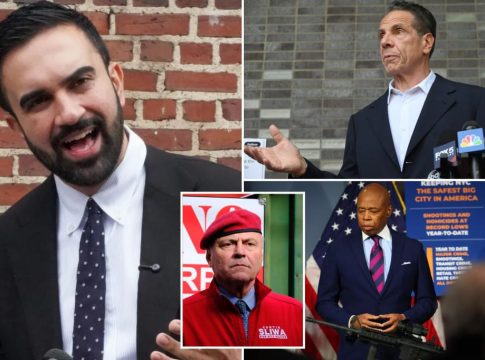New York’s Mayoral Primary Results May Take Weeks to Determine
New York City prepares for an unpredictable election cycle as the primary polls close.
As New Yorkers head to the polls on Primary Day, the race for the Democratic mayoral nomination is poised to be one of the most uncertain in decades. Due to the complexities of absentee ballots, ranked-choice voting, and a slow vote transfer process, it could take weeks before a definitive winner emerges.
Candidates in Play
The primary features prominent candidates including former Governor Andrew Cuomo and Assemblyman Zohran Mamdani. Notably, both may still find themselves on the general election ballot even if they do not win the primary. Cuomo has secured a spot on his own "Fight and Deliver" party line, while Mamdani could continue his campaign under the Working Families Party ticket, which has already endorsed him as their top choice for mayor.
Despite the expected internal party dynamics, the November election could become a competitive multi-candidate affair, with both Cuomo and Mamdani potentially running against current Mayor Eric Adams—who is seeking reelection—Republican nominee Curtis Sliwa, and independent candidate Jim Walden. If this scenario unfolds, it could lead to a complex five-way race, a rarity since 1969.
Voter Sentiments and Safety Concerns
In the lead-up to the primary, a recent Manhattan Institute poll indicates that 62% of likely voters believe the city is on the wrong track. Public safety has emerged as a primary concern, with many voters calling for increased police presence and stricter enforcement of laws against fare evasion, drug use, and vandalism.
Cuomo has positioned himself as the candidate most aligned with public sentiment on safety issues, attracting support from older women and diverse outer-borough residents. As a result, he leads among voters who prioritize crime, whereas Mamdani struggles to gain traction, particularly among those prioritizing these issues.
Ideological Divide
Mamdani, viewed as a millennial socialist, appeals to a more progressive, younger demographic, but this base may not be broad enough to win crucial citywide support. His campaign has resonated within affluent and educated circles, yet the understanding remains that a singular ideological approach may not suffice to claim victory at Gracie Mansion.
While Cuomo faces criticism for past controversies, he is increasingly seen by Democratic voters as the most pragmatic choice to effectively govern New York City.
The Role of Trump and the Upcoming General Election
As the general election approaches, the political landscape may shift even further. Speculation arises about potential endorsements from Donald Trump, who garnered 30% of the New York City vote in the 2024 presidential election. Should he back one of the candidates, it could consolidate the vote among less liberal, working-class residents—a demographic that appears fatigued by progressive agendas that they believe have contributed to the city’s issues.
In summary, while the primary results might not provide immediate clarity, the implications for November’s election are significant. Voter frustrations suggest that the eventual winner will need to address key concerns around safety and quality of life—concerns that are more pressing than ever in the current climate.
This developing story will continue to evolve as more information becomes available in the coming weeks.

Focuses on crime, public safety, and regional events.
Bio: Marcus is a community-based journalist passionate about reporting impactful stories that matter most to readers.

